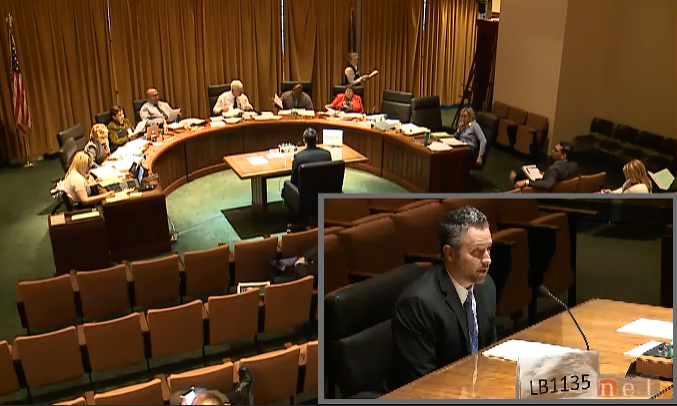Editor’s Note: First Five Nebraska testified in support of LB1135 this week. Introduced by Senator Tony Vargas, the bill would adopt the Alternative Certification for Quality Teachers Act, which would require the State Board of Education to grant a teaching certificate to any person in good standing who has a valid teaching certificate from another state and who annually completes the requirements to maintain the teaching certificate. It also would allow the board to grant a temporary teaching certificate to anyone who has a valid bachelor’s degree or higher, passed the basic skills and subject area tests and is enrolled in an alternative teacher certification program approved by the board. This temporary certificate would only be valid for two years. After that time, the individual would be required to have a valid Nebraska teaching certificate. This blog post is adapted from Policy Research Analyst Ben Baumfalk’s testimony.

First Five Nebraska endorses policies that promote quality early learning environments for children most at risk of failing in school. First Five Nebraska strongly believes that children, especially those most at risk, require quality early experiences in their natural and inclusive environments if they are to reach their full potential. We commend Senator Vargas and his staff for offering solutions to address teacher shortages in school- and ESU-based early childhood programs. Although certification is not the only means to a quality early learning environment, it is currently the best proxy we have for these programs.
Evidence is mounting that higher-quality early childhood environments result in better developmental outcomes, especially for children of low-income families and those who speak a language other than English at home. Quality early environments can play an important role in reducing grade retention, special education placements and in improving children’s overall educational attainment. Although many factors contribute to quality interactions between children and their caregivers, the qualifications of staff are among the most important. In a recent report released by the National Conference of State Legislatures, A Fair Start: Ensuring All Students Are Ready to Learn, a bipartisan commission made up of state legislators and early learning researchers identified professionalizing the preschool-to-grade-3 workforce as a core strategy in producing world-class early care and education systems.
Schools Face Challenges
Ideally, all early learning environments in Nebraska would be staffed by highly skilled professionals qualified to nurture children’s cognitive and socio-emotional development. Realistically, we recognize many school districts and ESUs face challenges in finding certified professionals for their early childhood programs. The Nebraska Department of Education conducts a yearly teacher vacancy survey to identify shortages by endorsement area and region of the state. Early childhood education consistently appeared as a shortage area in each of the past five years. We need to seek out solutions that address the early childhood teacher shortage without compromising the quality of the profession, and thus, the experiences of the children served by these programs. We think LB1135 does this by offering appropriate, yet flexible, solutions and recommend senators advance the bill.


